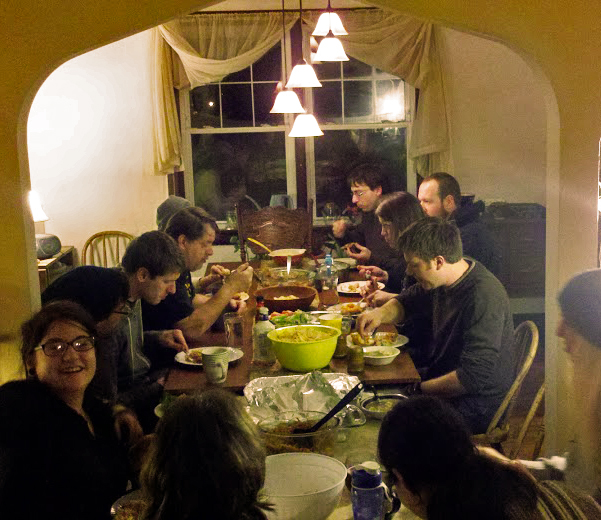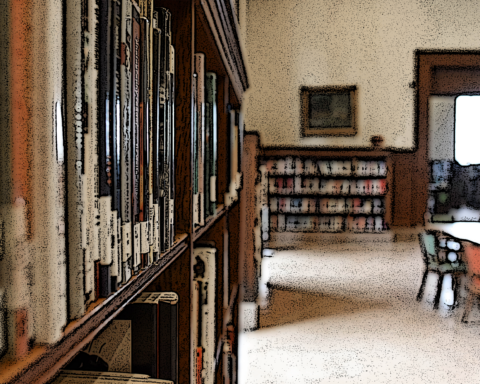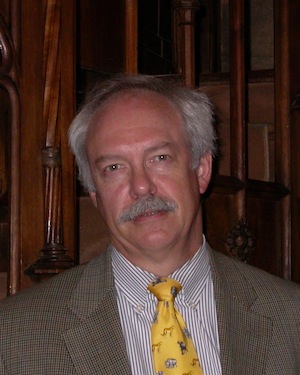The Kingdom of God and the Myth of the American Dream

I am the son of first-generation, working-class Korean immigrants. My family lived a difficult but fairly typical immigrant life: My parents went through many failed attempts at starting small businesses in the US, but when push came to shove, they were able to keep food on the table. Growing up in this context, I – like many – longed to be rich and found myself gravitating toward those who were successful. After all, I grew up with this sense that my parents had come to this country to experience the “American Dream” of wealth and financial security. Sure, I heard my fair share of sermons about how hard it is for the rich to enter the Kingdom of Heaven, but immediately after worship, the same people would talk about their new jobs, cars, and homes – or the new-and-improved cell phone they had just purchased. Often, this myth of the American Dream is embedded as deeply in the church as anywhere else.
Thankfully, through my experience at Church of All Nations, I have learned a new way of understanding what it means to be rich. I have found a treasure that “neither moth nor rust consumes” and that can never be bought or stolen from me. I have discovered the joy living together in intentional Christian community.
___________________________________________
The lesson I never got growing up in school – or church for that matter – was the lesson of Christian financial stewardship.
___________________________________________
Before I went to seminary, I worked full-time at a car rental company and had very little debt. However, working in the business world, I didn’t feel like I was following God’s will for my life, so I decided to take a leap of faith, leave my job, and follow a call to seminary. My call to seminary came in part from a desire to find meaning in my life. I believed that serving God in the church would be more faithful than serving in the corporate world, and I went to seminary to explore this. While my intentions seemed normal at the time, I realize now that I made the decision to go to seminary out of a place of deep insecurity. And that is how I started a graduate degree with neither a financial plan nor the support that I would need.
 I do not regret following my call to seminary. It was during that time, while serving in a part-time youth ministry position, that I first heard my call to be a pastor. Sadly, it was also during seminary that I incurred most of my debt.
I do not regret following my call to seminary. It was during that time, while serving in a part-time youth ministry position, that I first heard my call to be a pastor. Sadly, it was also during seminary that I incurred most of my debt.
In the end, my flawed understanding of educational loans as “good debt” really hurt me. Once I started on the road to debt, I felt powerless to go back. My understanding of my student loans and the money I was spending was so abstract. Once again, this stemmed from the myth of the American Dream. I convinced myself that if I went to a good seminary, I would be able to get a high-paying job immediately after graduation and pay all that money back – no problem! I really didn’t understand the repercussions of having access to $20,000 in loans every year. The financial aid office made it easy for me to take out loans, but no one ever told me how hard it would be to pay them back.
I never fully understood the consequences of my financial decisions because I didn’t have a financial background and acted without seeking the financial wisdom I needed. I truly, if naively, believed that God had a plan to miraculously pay off my student loans someday. I held tight to my faith conviction that “with God all things are possible.” The lesson I never got growing up in school – or church for that matter – was the lesson of Christian financial stewardship. How do we use our resources to live well? How do we differentiate between systems that help those in need and systems that only serve to widen the gap between the rich and the poor?
___________________________________________
At the root of my financial problems lay my individualistic understanding of life… As the church, we are called to be involved in each other’s lives, and that includes one another’s economic well-being.
___________________________________________
My faith community at Church of All Nations has helped me recognize that at the root of my financial problems lay my individualistic understanding of life. I couldn’t see how my Christian life was connected to my finances, even less so how my financial successes and woes were interconnected with the lives of others! In this new faith community, I experienced a complete paradigm shift. My focus shifted from how to succeed on my own to how to love God and neighbor – and how to be loved.
 I could no longer be a victim of financial debt because I was no longer blind to the system. I came to a radically new understanding of economics. I saw the failure of banks, colleges, governments, and even churches to educate people about the impact of our financial decisions on ourselves and others, and I recognized my own complicity in these and other self-serving and unjust financial systems. In my experience, the blind were leading the blind, and everyone was playing cover-up.
I could no longer be a victim of financial debt because I was no longer blind to the system. I came to a radically new understanding of economics. I saw the failure of banks, colleges, governments, and even churches to educate people about the impact of our financial decisions on ourselves and others, and I recognized my own complicity in these and other self-serving and unjust financial systems. In my experience, the blind were leading the blind, and everyone was playing cover-up.
I could only be liberated from my bondage to mammon by naming the injustice of mammon – and thus the injustice of the American Dream. I see that injustice in how easy it is to justify making or borrowing lots of money as “acceptable” and “good for society.” I see it in my faulty, individualized understanding of life and in the way society defines our worth in dollars and cents.
___________________________________________
Our struggling economy is an opportunity for the church to embody a new understanding of economic life.
___________________________________________
In the face of this profit-driven, individualized worldview, I have learned that my faith community is what gives me life and identity. Without a generous and honest Christian community, I would be lost and alone. I am one among many young adults who have suffered from our individualistic culture and have faced difficult and life-altering decisions alone. As for me, I ended up with a mountain of debt that had me bound not only financially but also emotionally, socially, psychologically, physically, and spiritually.

As the church, we are called to be involved in each other’s lives, and that includes one another’s economic well-being. Living into God’s vision of Jubilee is one way for the Church to show the world we are salt and light – that we have something worthwhile to share. A faithful church cannot take love of God and neighbor lightly. Let us not be the priest and Levite that, as the parable goes, saw the man on the side of the road and passed by on the other side.
My experience at Church of All Nations has been nothing short of Jubilee. I have received hospitality in too many ways to count – housing, food, and access to health care – and have been taught financial responsibility within the framework of community sustainability. The community has shown me genuine love and care, both in helping me meet my basic necessities and in and in teaching me lessons of hope and teamwork. Through the daily life of an intentional community, I have learned that shoveling snow, reading books, and even eating quickly are all occasions for living life together. I have learned that ultimately, living life together is the good news – and the key to “living well.”
___________________________________________
I have learned that ultimately, living life together is the good news – and the key to “living well.”
___________________________________________
Our struggling economy is an opportunity for the church to embody a new understanding of economic life. We can model a life lived out of gratitude, a life lived together, loving and serving one another with our gifts and resources. Living this kind of life together, I learned that I need very little in order to live well. I learned that sharing gifts and love with one other is what being “rich” is really all about.

Our understanding of stewardship at Church of All Nations includes the financial but is not limited to it. Members of our church contribute a variety of resources to make life and fellowship possible for our other congregation members. One of our deacons provides free or reduced rent for the community house. One of our staff leaders cooks for over 100 people every Sunday so we can share a fellowship meal. One elder opens her home once a month for a potluck fellowship. Our session has converted some of our Bible study classrooms into bedrooms for intern housing. These are just few examples of how church can be an intentional living community beyond Sunday worship.
I still have a substantial amount of debt, but it’s not the all-encompassing, spiritual burden that it used to be. I now know that being rich is not as much about financial independence and success as it is about meaningful relationships. I find my daily life full of joy as I experience the community of believers continually being built up and encouraged. I believe that Jesus came to teach all of humanity to live out of joy and gratitude with one another. Through our daily interactions with God and neighbors, our true identities are revealed. Living in community has become a true vocation for my life. This, for me, is the life worth living.
*****
AUTHOR BIO: Jae Cho is the English Ministry Pastor at Korean Presbyterian Church of Tampa and recently completed an extensive Parish Resident Internship at Church of All Nations. He graduated from Regent College with his M.Div. in 2011.
Read more articles from the young adult issue!






Unbound Social